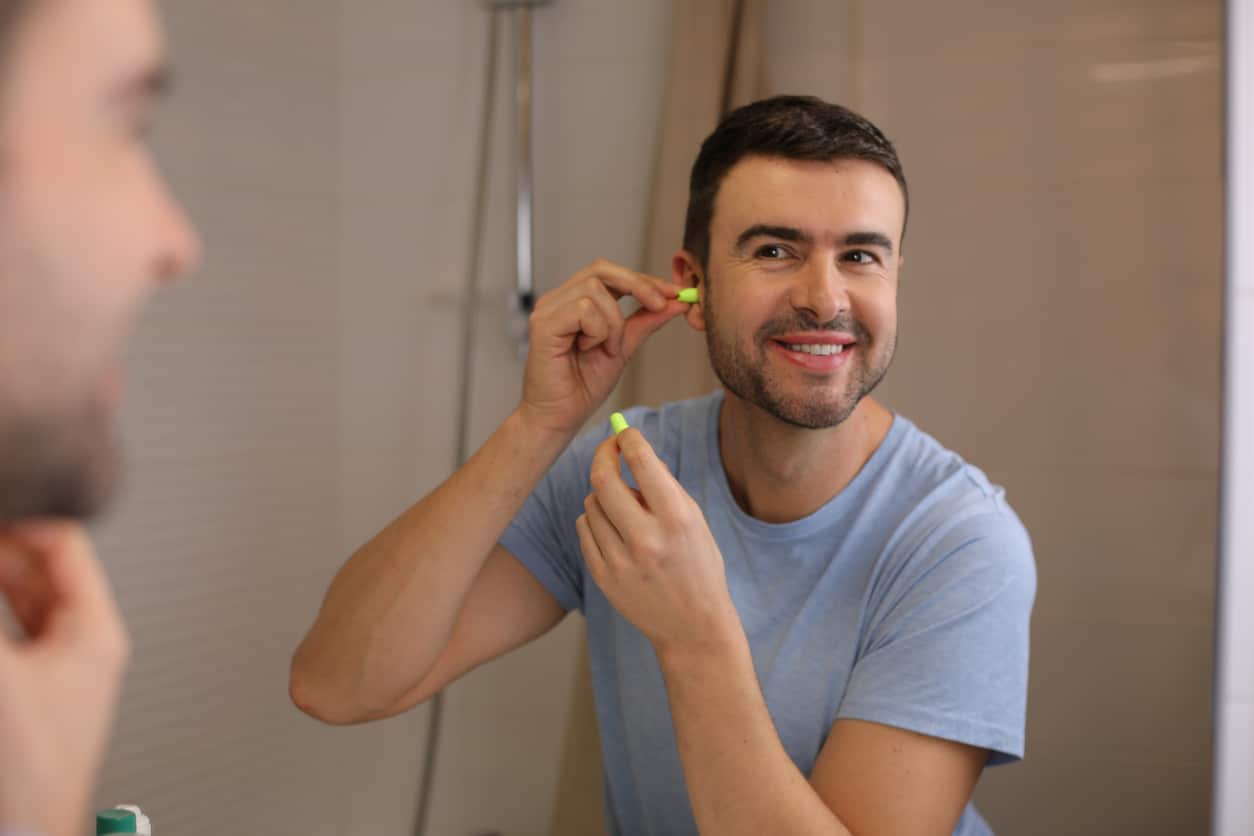Hearing loss affects approximately 20% of the global population. If you’re among the people with hearing loss, it can feel easy to push hearing protection off to the side, assuming it is no longer necessary. In reality, hearing loss is not a one-time occurrence. For example, if you develop hearing loss after a sudden loud noise exposure, it may only be mild. With the right protection, you can prevent it from getting worse and preserve the hearing you still have.
It’s never too late to protect your hearing and maintain the best possible quality of life. Let’s explore the benefits of safeguarding your hearing and share some helpful tips on how to do it.
Why Does Hearing Protection Matter?

Protecting your remaining hearing helps prevent unnecessary hearing loss and tinnitus and allows your hearing aids to do their job. Hearing aids work by amplifying external noises and delivering them into your ear canal. For these devices to work, you need to be able to understand the amplified noises. Safeguarding your hearing is the best way to ensure your ears can continue to comprehend these amplified sounds.
Hearing Protection Tips
A few ways you can help protect your remaining hearing include:
- Schedule regular audiology visits. Your audiologist can administer a hearing test to establish your baseline hearing. This will allow them to track your hearing loss over time. If your hearing loss worsens, they can recommend protection tips and make the necessary adjustments to your hearing aids.
- Wear earmuffs or earplugs. Earmuffs and earplugs protect your hearing by softening the impact with which sound hits your ear. Carry a pair of earplugs in your purse, wallet or car to make sure you always have them on hand for action movies, construction zones or concerts at the Mars Music Hall. If you work around heavy machinery, request earmuffs from your employer.
- Turn down the volume. Noise-induced hearing loss can arise from repeated or prolonged exposure to noise over 85 decibels or approximately the volume of a gas-powered lawnmower. Turning down the volume on your headphones, TV or radio is one great way to minimize your exposure to loud noise. If you have trouble keeping the volume low, try setting decibel limits on your cell phone.
By protecting your remaining hearing, you can continue to enjoy all the benefits your hearing aids offer. For more information on hearing protection, contact North Alabama ENT Associates today to schedule an appointment with one of our specialists.